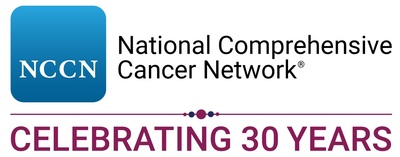New population study on adjuvant hormone therapy for breast cancer finds correlation between hot flashes and poorer outcomes-in contrast to clinical trial results; likely due to patients with side-effects ending treatment early.
PLYMOUTH MEETING, Pa., June 21, 2022 /PRNewswire/ -- New research in the June 2022 issue of JNCCN-Journal of the National Comprehensive Cancer Network raises issues with clinical trial findings that show adjuvant hormone therapy (AHT)-related hot flashes predict better outcomes for estrogen receptor-positive (ER+) breast cancer. The population-based study looked at 7,152 chemotherapy-free patients with breast cancer in Sweden between 2006 and 2019 and found patients who were treated for hot flashes after beginning AHT were actually more likely to have worse outcomes. Patients who were subsequently treated for hot flashes had a 14.2% higher early discontinuation rate, which may account for the significantly shorter length of disease-free survival (DSF).

"Results from clinical trials might not translate to the real world because the therapy discontinuation rates differ between these two settings," said corresponding author Wei He, PhD, School of Public Health, Zhejiang University, China; and Department of Medical Epidemiology and Biostatistics, Karolinska Institutet, Stockholm, Sweden. "Cancer care providers need to be aware that prescribing symptom-relieving drugs to patients with treatment-related side effects may not be enough to prevent treatment discontinuation."
Lead author Erwei Zeng, MSc, also with Karolinska Institutet, added, "The link between using drugs for hot flashes and discontinuing AHT was weaker among patients with a family history of cancer. This may be because patients with family members who had cancer or died of cancer had a stronger motivation to complete AHT, even if they experienced treatment-related adverse effects."
According to research cited in the article, AHT for ER+ breast cancer-including tamoxifen and aromatase inhibitors-reduces breast cancer mortality by 30% and 40% respectively in randomized clinical trials. Hot flashes were one of the most common side effects, but only led to an 8%-28% rate of treatment discontinuation. In real-world settings, the rate of patients ending treatment earlier than initially prescribed ranged from 31% to 73%.
"Precision medicine based on the patient's genetic background may help to reduce treatment discontinuation," said senior author Kamila Czene, PhD, Karolinska Institutet. "Another potential intervention could be lowering the dose of AHT for some patients to reduce treatment-related side effects."
"Approximately 20% of patients with breast cancer discontinue anti-estrogen therapy prematurely," commented Jame Abraham, MD, FACP, Chairman, Department of Hematology and Medical Oncology, Cleveland Clinic Taussig Cancer Institute, and Member of the NCCN Clinical Practice Guidelines in Oncology (NCCN Guidelines) Panel for Breast Cancer.
Dr. Abraham, who was not involved in this research, continued: "There can be multiple reasons for this, including side effects. It is interesting to see that this real-world data shows worse outcomes in patients with hot flashes, likely leading to more early discontinuation of endocrine therapy. It is important for the clinicians to continue to pay attention to the management of side effects and adherence to therapy."
The study authors did caution that this research took place in a country with a unified healthcare system, potentially complicating generalizations that can be made to the United States.
To read the entire study, visit JNCCN.org. Complimentary access to "Adjuvant Hormone Therapy-Related Hot Flashes Predict Treatment Discontinuation and Worse Breast Cancer Prognosis" is available until September 10, 2022.
More than 25,000 oncologists and other cancer care professionals across the United States read JNCCN-Journal of the National Comprehensive Cancer Network. This peer-reviewed, indexed medical journal provides the latest information about innovation in translational medicine, and scientific studies related to oncology health services research, including quality care and value, bioethics, comparative and cost effectiveness, public policy, and interventional research on supportive care and survivorship. JNCCN features updates on the NCCN Clinical Practice Guidelines in Oncology (NCCN Guidelines), review articles elaborating on guidelines recommendations, health services research, and case reports highlighting molecular insights in patient care. JNCCN is published by Harborside. Visit JNCCN.org. To inquire if you are eligible for a FREE subscription to JNCCN, visit NCCN.org/jnccn/subscribe. Follow JNCCN on Twitter @JNCCN.
The National Comprehensive Cancer Network (NCCN) is a not-for-profit alliance of leading cancer centers devoted to patient care, research, and education. NCCN is dedicated to improving and facilitating quality, effective, equitable, and accessible cancer care so all patients can live better lives. The NCCN Clinical Practice Guidelines in Oncology (NCCN Guidelines) provide transparent, evidence-based, expert consensus recommendations for cancer treatment, prevention, and supportive services; they are the recognized standard for clinical direction and policy in cancer management and the most thorough and frequently-updated clinical practice guidelines available in any area of medicine. The NCCN Guidelines for Patients provide expert cancer treatment information to inform and empower patients and caregivers, through support from the NCCN Foundation. NCCN also advances continuing education, global initiatives, policy, and researchcollaboration and publication in oncology. Visit NCCN.org for more information and follow NCCN on Facebook @NCCNorg, Instagram @NCCNorg, and Twitter @NCCN.
Media Contact:
Rachel Darwin
267-622-6624
darwin@nccn.org
Logo - https://mma.prnewswire.com/media/441768/NCCN_Logo.jpg

